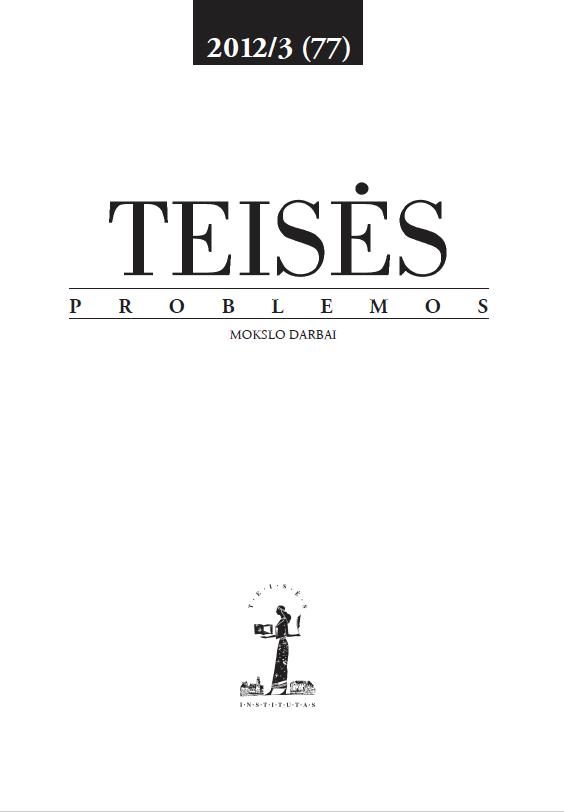Akcininko locus standi dėl visuotinio akcininkų susirinkimo sprendimų pripažinimo negaliojančiais
Shareholder Locus Standi to Challenge Resolutions of Shareholders’ General Meeting
Author(s): Lina MikalonienėSubject(s): Law on Economics
Published by: Lietuvos teisės institutas
Summary/Abstract: Invalidation of resolutions of shareholders’ general meeting is one of the remedies for breach of shareholders’ rights. Even though such remedy has been extensively used by shareholders in the Lithuanian court practice and one of the purposes of the corporate law is to protect shareholders’ investment in a properly balanced way, shareholder locus standi to challenge resolutions of shareholders’ general meeting have not been of major interest for the Lithuanian scholars. This article analysis ex lege requirements for shareholder’s right to suite on the basis of two criteria, e.g. function of the remedy and its proper use by a shareholder. Seeking to avoid abuses of litigating shareholder some countries apply different preventive measures. It is required that shareholder challenging the resolution of shareholders’ general meeting should have been participated at the meeting and opposed such resolution or should have demonstrated that the shareholder has not been able to attend the meeting due to the violation of procedural requirements by the defendant. Also, the right to control collective shareholders‘ powers is ex lege established as minority right, as the case may be for public stock companies for specific resolutions. Relying on comparative empirical studies representing that ex lege protective measures are not that effective as well as considering that these measures are not full-inclusive and they cannot be per se justified in all cases, it is concluded that the right to challenge resolutions of shareholders’ general meeting should be vested to each shareholder, as it is currently being established by the Lithuanian legislation. Nevertheless the preventive measures are important when evaluating legitimate interest of the shareholder as well as defining shareholder actions as abusive, therefore should be considered in the litigation procedures ad hoc. Invalidation of resolutions of shareholders’ general meeting as a remedy for breach of shareholder rights does not only protect shareholder‘s personal interest but also influence collective interests (e.g. rights of other shareholders, the company as an independent commercial entity) as well as third party interests. To comply with the proper function of the remedy, direct violation of the subjective right and (or) legitimate interest of the shareholder must be stated. Therefore, the article 2.82 Part 4 of the Lithuanian Civil Code should not be interpreted as a presumption of automatic violation of shareholder‘s interest in case of non-compliance with the legislation, by-laws or principles of reasonableness and fairness. In case merely private shareholder interest is breached, negative consequences caused by the violation of the subjective right and (or) legitimate interest of the shareholder should be established.
Journal: Teisės problemos
- Issue Year: 2012
- Issue No: 77 (3)
- Page Range: 5-29
- Page Count: 25
- Language: Lithuanian

